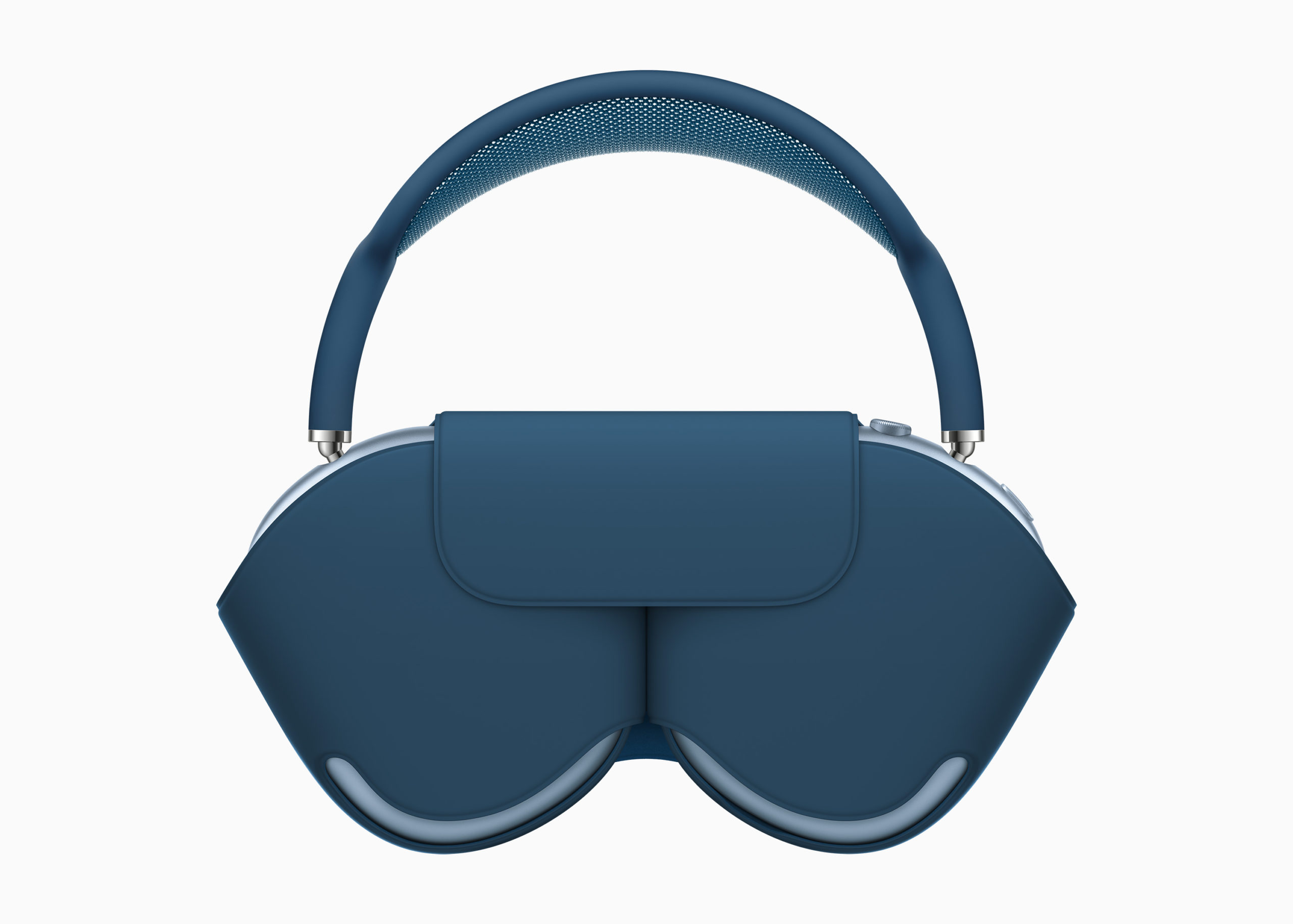
Hefty Price Tag of Apple’s AirPods Max Draws Less than Enthusiastic Response from China Internet Users
Apple on Tuesday unveiled its first set of over-ear headphones, the AirPods Max, in an attempt to boost holiday sales.
Apple on Tuesday unveiled its first set of over-ear headphones, the AirPods Max, in an attempt to boost holiday sales.
Priced at US$549 and 4399 yuan in China, the premium wireless headphones are more expensive than the company’s entry-level iPhone, iPad and Watch models.
A departure from its earbuds design of the same line, the AirPods Max sport large cushions attached to a stainless steel frame and a mesh headband.
Reaction from Chinese social media has been mixed but mostly less than enthusiastic, with many net users complaining about the hefty price tag of the headphones.
By comparison, Bang & Olufsen’s H8i wireless headphones retail for 2,158 yuan ($330) with 12.12 festival discounts on its official store on e-commerce platform Taobao, and its H9 headphones are priced at 2,098 yuan ($321) after discounts.
Other high-end headphones such as Bose’s Noise Cancelling 700 sell for 2,489 yuan ($381) with holiday discounts while Sony’s latest flagship headphones, the WH-1000XM4, are priced at 2,499 yuan ($383) on Taobao.

Apple had planned to launch the product in the fall, but had to tweak its design after some testers deemed the headband too tight, Bloomberg reported.
Unlike AirPods earbuds which only come in white, the new headphones are available in five colors, including space gray, silver, sky blue, green, and pink, and offer a 20-hour battery life, charging over Apple’s Lightning connector.
Apple said the AirPods Max was available to order starting Tuesday, with availability beginning Dec 15. However, a check on Apple’s China site showed orders are expected to ship in 12-14 weeks, meaning customers in China will not receive the product until March 2021.
The AirPods Max contains nine microphones and an H1 chip — Apple’s custom-designed audio processor — in each ear cup. The microphones can provide noise cancellation, adjust audio levels in real time, help reduce wind noise during phone calls and features “Spatial Audio”, which uses head tracking to create a surround sound experience. A separate “noise control” button will allow users to switch between noise-canceling and transparency modes.

A feature of the Apple Watch — the Digital Crown — is also implemented on the headphones, offering volume control and the ability to play or pause audio, skip tracks, answer or end phone calls, and activate Siri.
Net users in China were quick to offer their thoughts on Weibo, China’s Twitter-like microblogging platform, with the trending topic “AirPods Max” attracting more than 86 million views soon after the product was launched.
Most commenters complained about the headphones’ premium price tag, questioning the value of the product.
“Selling 4,399 yuan in China? Isn’t the price a bit ridiculous?” one user said.
“At this price, sorry. I’d rather go with Sony, Bose or HiFiMAN,” another said.
“I’ll admit that the AirPods Max is pretty awesome. The comfort of the mesh design with its H1 chip is probably worth this much money. Basically, it has incorporated the audio quality of its HomePod smart speaker and the convenience of its AirPods earbuds. However, spending 4,399 yuan on a pair of headphones is totally unimaginable,” one reviewer commented.
SEE ALSO: Apple To Launch New Affordable iPhone As Sales Plunge In China
“I might get them if there’s a better price at third-party retailers. For AirPods Max, I am only willing to pay 2,999 yuan — and not a dollar more,” one commenter said.
Apple’s last quarter results showed a rise in sales in its accessories unit, even as revenue from its flagship iPhones dropped 20.7%, the steepest quarterly drop in two years, according to Reuters. Accessories sales were up 16% at US$53.8 billion (351 billion yuan), while iPhone sales were down 3% at US$137.8 billion (899 billion yuan) for the fiscal year of 2020.





